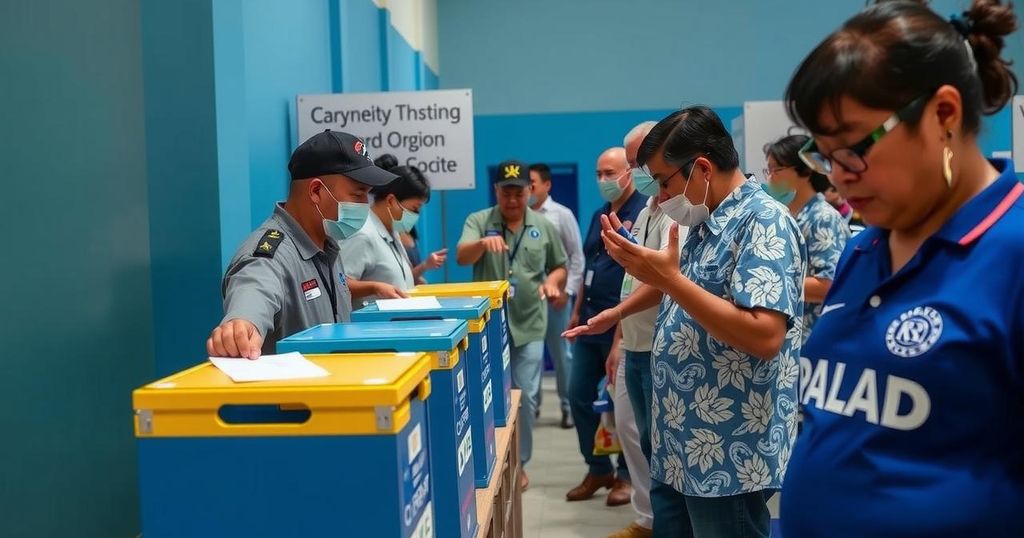Palau Elections: A Crucial Test amid US-China Tensions

On November 5, Palau will hold elections amid growing geopolitical tensions between the US and China. The candidates, President Whipps Jr. and former president Remengesau Jr., represent differing approaches to foreign relations and economic policy. While Whipps advocates for stronger US ties, Remengesau favors collaboration with China on climate issues. The election not only addresses local economic concerns but also highlights the broader strategic competition for influence in the Pacific.
On November 5, Palau, a tiny Pacific nation, will hold elections that underscore its strategic importance in the regional rivalry between the United States and China. Voters will choose between President Surangel Whipps Jr., a pro-US candidate focused on economic reforms and strengthening ties with Washington, and former president Tommy Esang Remengesau Jr., who advocates for collaboration with China on climate initiatives. In the backdrop of this election looms a recently constructed US military runway, indicative of America’s intentions to bolster its presence amid rising concerns about China’s expansion in the region. Palau currently maintains diplomatic relations with Taiwan, resisting China’s overtures despite economic pressures resulting from the geopolitical tensions that have affected tourism and trade. The election is not just about internal concerns of economic wellbeing but also symbolizes a broader competition between global powers for influence over small nations. Mr. Whipps has benefited from economic contracts linked to US military efforts, which his challenger claims create conflicts of interest. This electoral contest emphasizes the crucial balance Palau must navigate between maintaining its alliance with the US and addressing the socioeconomic challenges that its citizens face, predominantly rooted in an economy heavily reliant on tourism and imports. In contrast, Mr. Remengesau argues for environmentally conscious policies and stronger engagement with community leaders to preserve the nation’s ecosystem against the backdrop of climate change, proposing a more diversified economic approach that may include a reconsideration of relations with China. Amid the electoral backdrop, both candidates reflect on the importance of their diplomatic choices, while Palau’s citizens grapple with the implications of these influences on their daily lives. Ultimately, the manner in which Palau is governed and its leaders’ accountability will play a pivotal role in how successfully they can ward off external pressures and achieve national stability. As Palau moves towards its election, the decisions made could significantly impact its future foreign relations—particularly in how it balances friendships with both the United States and China.
Palau, an archipelago nation in the Pacific, has strategic significance due to its location and diplomatic ties, specifically with Taiwan, contrasting with many of its Pacific neighbors who have aligned with China. The geopolitical dynamics are intensifying, with the US increasing military presence to counter China’s influence, making Palau a key player in the broader Pacific security landscape. The economic challenges, exacerbated by reliance on tourism and imports, add another layer of complexity to Palau’s political landscape as it heads towards elections. This tension between environmental concerns, economic stability, and foreign relations is significant in shaping the priorities of candidates and the electorate alike.
The upcoming elections in Palau on November 5 serve as a crucial point in the nation’s navigation of external influences amid internal challenges. The competition between President Whipps’s pro-US stance and Remengesau’s openness to China highlights the need for a delicate balance between maintaining sovereignty and pursuing economic opportunities. As Palau approaches its decision, the implications of its alliance with both the US and China will not only define its national policy but also reflect on the resilience of its governance in the face of globalization and geopolitical pressures.
Original Source: www.theguardian.com







